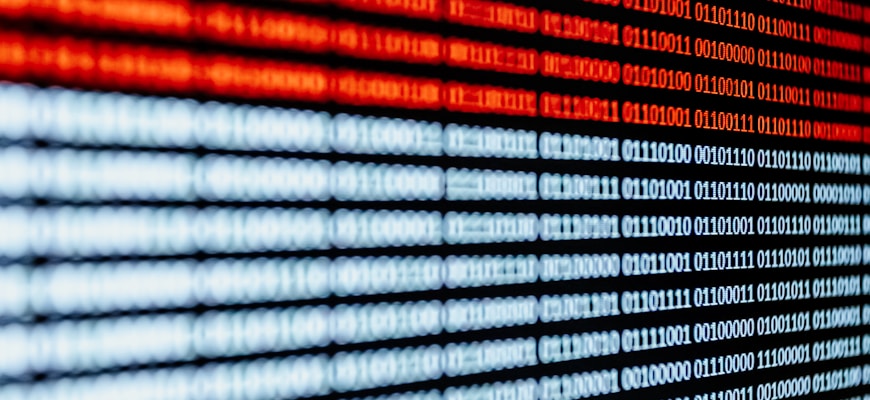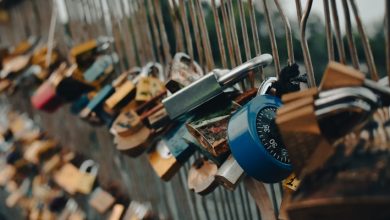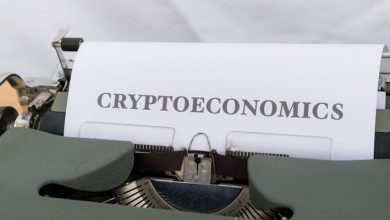Analyzing the Role of DAOs in Decentralized Governance

- Understanding the concept of DAOs in decentralized governance
- Exploring the potential impact of DAOs on traditional governance structures
- Challenges and opportunities in implementing DAOs for decentralized decision-making
- Case studies of successful DAOs and their role in governance
- The evolution of DAOs and their significance in the future of governance
- Regulatory considerations for DAOs in decentralized governance
Understanding the concept of DAOs in decentralized governance
Decentralized Autonomous Organizations (DAOs) are a key component of decentralized governance structures. DAOs are essentially self-governing entities that operate through smart contracts on blockchain networks. These organizations are designed to operate without the need for centralized control or intermediaries, allowing for transparent and autonomous decision-making processes.
DAOs utilize blockchain technology to enable members to participate in governance decisions through voting mechanisms. This enables stakeholders to have a direct say in the direction and management of the organization. By leveraging the security and transparency of blockchain technology, DAOs aim to create a more democratic and decentralized governance model.
One of the key benefits of DAOs is their ability to facilitate trustless interactions between participants. Trustless interactions refer to the ability to transact or engage with others without the need for trust in a central authority. This is achieved through the use of smart contracts, which automatically execute predefined rules and actions based on the consensus of the network.
Exploring the potential impact of DAOs on traditional governance structures
Exploring the potential impact of DAOs on traditional governance structures is essential in understanding how decentralized autonomous organizations (DAOs) are revolutionizing the way decisions are made and implemented. DAOs have the capability to disrupt traditional hierarchical systems by enabling transparent, consensus-driven decision-making processes. This shift towards decentralized governance has the potential to increase efficiency, accountability, and inclusivity in decision-making.
One of the key ways in which DAOs can impact traditional governance structures is through the removal of intermediaries. By using smart contracts and blockchain technology, DAOs eliminate the need for centralized authorities to oversee and validate transactions. This not only reduces costs but also minimizes the risk of corruption and manipulation within the governance process.
Furthermore, DAOs can enhance the level of participation and representation in decision-making processes. Through token-based voting mechanisms, individuals can have a direct say in governance matters, regardless of their geographical location or social status. This increased inclusivity can lead to more diverse perspectives being considered, resulting in more well-rounded and equitable decisions.
Additionally, the transparency and immutability of blockchain technology can provide greater trust and confidence in the governance process. By recording all transactions and decisions on a public ledger, DAOs ensure that all stakeholders have access to the same information, reducing the likelihood of misinformation or manipulation. This can lead to increased trust among participants and stakeholders in the governance process.
In conclusion, the potential impact of DAOs on traditional governance structures is vast and transformative. By enabling decentralized decision-making, eliminating intermediaries, increasing participation and representation, and enhancing transparency and trust, DAOs have the potential to reshape governance processes for the better. As DAOs continue to evolve and gain traction, it will be crucial to monitor their impact on traditional governance structures and adapt accordingly to fully realize their benefits.
Challenges and opportunities in implementing DAOs for decentralized decision-making
Implementing decentralized autonomous organizations (DAOs) for decentralized decision-making presents both challenges and opportunities. One of the main challenges is the lack of clear regulatory frameworks governing DAOs, which can lead to legal uncertainty and potential risks for participants. Additionally, DAOs may face technical challenges related to scalability, security, and governance processes. However, these challenges also present opportunities for innovation and development in the space of decentralized governance.
On the other hand, DAOs offer the opportunity to create transparent and trustless decision-making processes that are not controlled by any single entity. This can lead to increased efficiency, reduced costs, and greater inclusivity in decision-making. Furthermore, DAOs can enable greater participation and engagement from community members, allowing for a more democratic and decentralized approach to governance.
Overall, the challenges and opportunities in implementing DAOs for decentralized decision-making highlight the need for further research, experimentation, and collaboration in this emerging field. By addressing the challenges and capitalizing on the opportunities, DAOs have the potential to revolutionize how decisions are made in various organizations and communities.
Case studies of successful DAOs and their role in governance
Exploring case studies of successful decentralized autonomous organizations (DAOs) can provide valuable insights into their role in governance within the blockchain ecosystem. These real-world examples demonstrate how DAOs have been effectively utilized to streamline decision-making processes and enhance transparency in various decentralized communities.
- One notable example is “The DAO,” which was launched on the Ethereum blockchain in 2016. The DAO aimed to create a decentralized venture capital fund where token holders could vote on investment proposals. Despite facing security vulnerabilities that led to a significant hack, The DAO showcased the potential of decentralized governance and paved the way for future DAO projects.
- Another successful DAO is MakerDAO, which operates the decentralized stablecoin Dai. MakerDAO allows token holders to participate in the governance of the platform by voting on key decisions such as collateral types and stability fees. This model has proven to be effective in maintaining the stability of Dai and fostering community engagement.
- Aragon is yet another example of a successful DAO that focuses on creating decentralized autonomous organizations. Aragon provides a platform for users to easily create and manage their own DAOs, offering tools for voting, fundraising, and governance. This flexibility has empowered numerous decentralized communities to govern themselves autonomously.
Overall, these case studies highlight the diverse applications of DAOs in decentralized governance, from venture capital funding to stablecoin management and organizational creation. By leveraging blockchain technology and smart contracts, DAOs have the potential to revolutionize traditional governance structures and empower communities to make collective decisions in a transparent and efficient manner.
The evolution of DAOs and their significance in the future of governance
Decentralized Autonomous Organizations (DAOs) are a revolutionary concept that leverages blockchain technology to enable decentralized decision-making and governance. DAOs have evolved significantly over the years, from their early iterations with limited functionalities to more sophisticated structures that can execute complex operations autonomously. The significance of DAOs in the future of governance cannot be understated, as they offer a transparent, efficient, and secure way to manage collective resources and make decisions without relying on centralized authorities.
DAOs represent a paradigm shift in governance models, providing a decentralized framework where members can participate in decision-making processes and contribute to the overall direction of the organization. By leveraging smart contracts and blockchain technology, DAOs ensure transparency and immutability, reducing the risk of fraud or manipulation. This new approach to governance has the potential to disrupt traditional hierarchies and empower individuals to take control of their collective resources.
The evolution of DAOs has been driven by the need for more inclusive and transparent governance structures that can adapt to the complexities of the digital age. As blockchain technology continues to mature, DAOs are expected to play a more prominent role in various industries, including finance, healthcare, and supply chain management. These decentralized entities have the potential to streamline operations, reduce costs, and improve decision-making processes, ultimately leading to more efficient and equitable governance systems.
In conclusion, DAOs represent a new frontier in decentralized governance, offering a promising alternative to traditional centralized structures. As these entities continue to evolve and gain traction, they are likely to reshape the way we think about governance and collective decision-making. By embracing DAOs, organizations can harness the power of blockchain technology to create more transparent, efficient, and democratic governance systems that empower individuals and communities to shape their own futures.
Regulatory considerations for DAOs in decentralized governance
When considering the regulatory aspects of DAOs in decentralized governance, it is crucial to understand the potential challenges and implications that may arise. DAOs operate on blockchain technology, which presents unique legal and compliance issues that traditional centralized organizations do not face. One key concern is the lack of a central authority or legal entity to hold accountable in case of disputes or regulatory violations. This decentralized nature makes it difficult for regulators to enforce laws and regulations effectively.
Additionally, the anonymity and pseudonymity of participants in DAOs can pose challenges for regulators in identifying and holding individuals accountable for illegal activities. This lack of transparency can create opportunities for money laundering, fraud, and other illicit activities to go undetected. As a result, regulators around the world are grappling with how to address these challenges and develop appropriate frameworks to govern DAOs effectively.
Some jurisdictions have taken proactive steps to regulate DAOs and establish guidelines for their operation. For example, the United States Securities and Exchange Commission (SEC) has issued guidance on how securities laws apply to DAOs and token offerings. Other countries, such as Switzerland and Singapore, have also developed regulatory frameworks to provide clarity on the legal status of DAOs and ensure compliance with existing laws.
Overall, the regulatory landscape for DAOs in decentralized governance is still evolving, with many unanswered questions and challenges ahead. It is essential for stakeholders, including regulators, policymakers, and DAO participants, to engage in constructive dialogue and collaboration to address these issues and foster a regulatory environment that promotes innovation while protecting investors and the integrity of the financial system.




